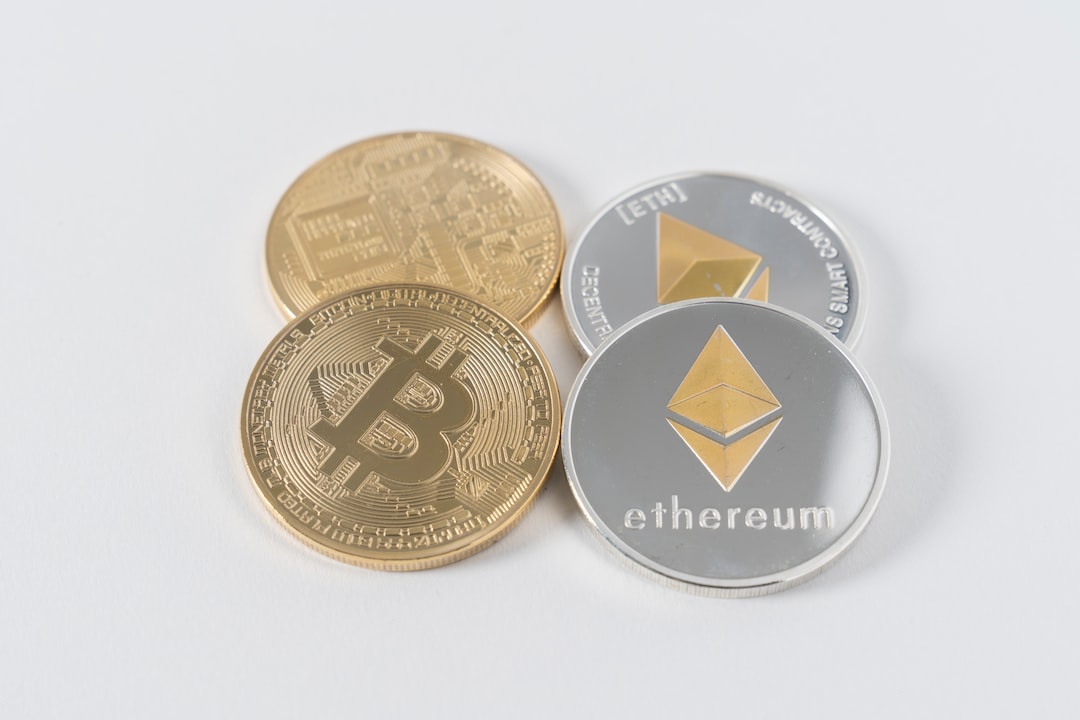Ethereum Name Service (ENS): Revolutionizing Blockchain Domain Names
Cryptocurrencies like Ethereum have revolutionized finance and how we store and transact value. But did you know that Ethereum also offers a groundbreaking technology that is transforming how we navigate the decentralized web? Say hello to Ethereum Name Service (ENS), a decentralized domain name system built on the Ethereum blockchain. In this article, we will explore how ENS is revolutionizing blockchain domain names and why you should take advantage of this innovative platform.
What is Ethereum Name Service (ENS)?
Think of ENS as a decentralized domain name system for the Ethereum blockchain. It allows you to register and manage domain names that end in .eth, just like the traditional domain name system we use on the internet. However, ENS takes it a step further by integrating with the Ethereum ecosystem, enabling a myriad of possibilities.
How does Ethereum Name Service work?
When you register a domain name through ENS, you are essentially claiming ownership of that name on the Ethereum blockchain. This ownership is represented by a unique token called a “ENS Token,” which you hold in your Ethereum wallet. This ownership allows you to link your domain name to various resources on the blockchain, such as Ethereum addresses, decentralized websites, and other smart contracts.
Why should you use Ethereum Name Service?
Using ENS offers numerous advantages. Firstly, it provides human-readable names for your Ethereum addresses. Instead of using long and complicated hexadecimal addresses, you can now associate your address with a simple and memorable .eth domain name, such as “yourname.eth.” This makes it easier for you and others to send and receive payments, improving the overall user experience.
Secondly, ENS expands the functionality of decentralized websites or dApps (decentralized applications). With ENS, you can link your domain name to your decentralized website or dApp, allowing users to access it through a familiar web address, just like traditional websites. This not only enhances usability but also enables greater adoption of decentralized web services.
Moreover, ENS enables secure and censorship-resistant websites. By hosting websites on decentralized protocols like IPFS and Swarm and linking them to ENS domain names, you can effectively render your websites immune to traditional DNS manipulation or censorship. This ability to create decentralized, censorship-resistant websites empowers users and preserves the fundamental principles of the open internet.
How to use Ethereum Name Service?
Getting started with ENS is simple. Firstly, you need an Ethereum wallet that supports ENS, such as MetaMask or MyEtherWallet. Once you have an Ethereum address and wallet set up, you can proceed to register your desired domain name on the ENS platform. The registration process typically involves submitting a bid for the domain name, and if successful, you will become the owner of the domain name for a specified duration.
After successfully registering a domain name, you can start linking it to various resources on the Ethereum blockchain. For example, you can associate your domain name with your Ethereum address to simplify transactions, or link it to your decentralized website or dApp to provide a user-friendly web address for your users.
ENS also allows you to transfer ownership of your domain name to others, opening up possibilities for buying and selling domains within the ENS ecosystem. Furthermore, ENS integrates seamlessly with popular blockchain services such as decentralized exchanges, enabling you to easily convert your domain name into a tradable asset.
Frequently Asked Questions (FAQs)
1. How much does it cost to register a domain name on Ethereum Name Service?
The cost of registering a domain name on ENS varies as it follows an auction-style model. You will need to submit a bid, and if successful, pay the winning bid amount in Ether (ETH). The registration fee ranges depending on the popularity of the chosen domain name.
2. Are there any ongoing fees for owning an Ethereum Name Service domain?
Unlike traditional domain name systems that require annual renewal fees, ENS only requires you to pay the initial registration fee, granting you ownership of the domain name for the chosen duration.
3. Can I use my Ethereum Name Service domain for email addresses?
Currently, ENS focuses on linking domain names to Ethereum-based resources like addresses, decentralized websites, and smart contracts. Though email integration is not directly supported, developers are constantly expanding ENS functionality, so it may become possible in the future.
4. Is Ethereum Name Service compatible with other blockchains?
As of now, ENS is designed specifically for the Ethereum blockchain and its ecosystem. However, similar systems are being developed for other blockchains, so interoperability between different domain name systems may become a reality in the future.
In conclusion, Ethereum Name Service (ENS) is revolutionizing blockchain domain names by providing a human-readable and decentralized system on the Ethereum blockchain. With ENS, you can simplify and enhance your interactions in the Ethereum ecosystem, from managing transactions to accessing decentralized websites and more. So why not explore ENS and join the growing movement towards a more user-friendly and decentralized internet?





 By
By
 By
By
 By
By

 By
By
 By
By